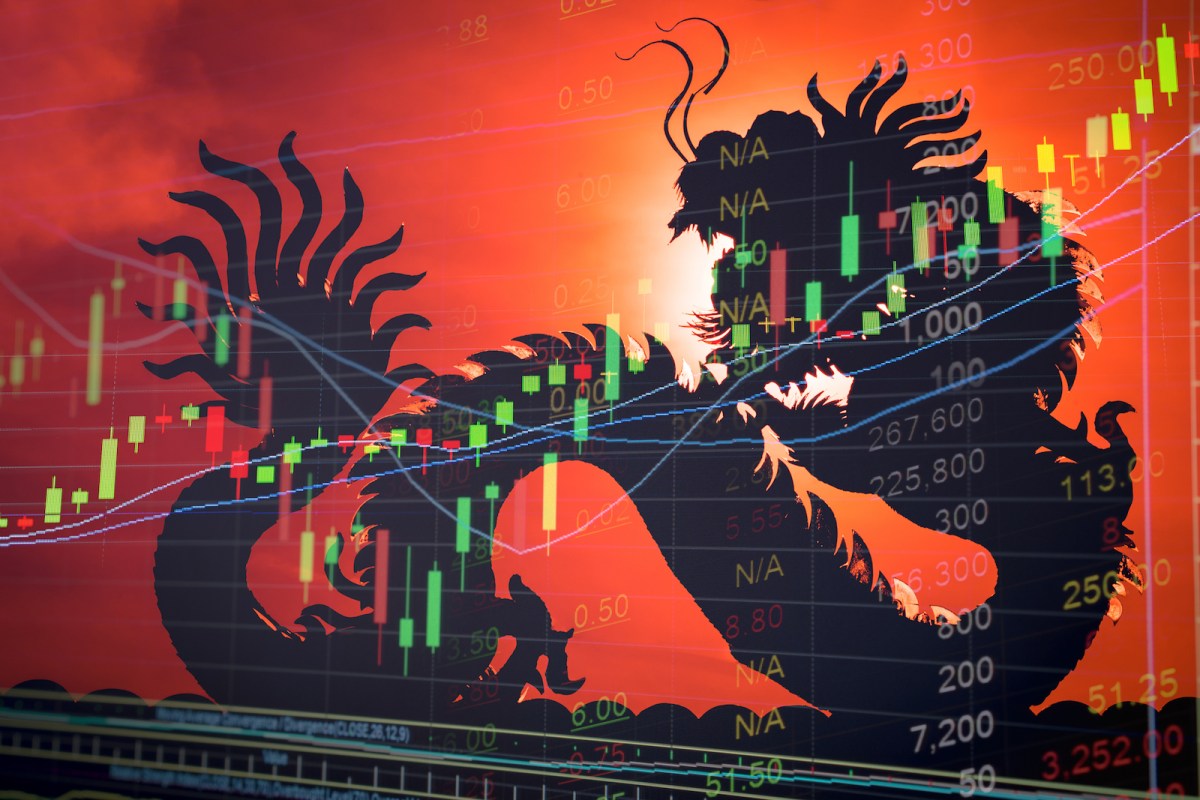[ad_1]
Upstart tech companies outperformed established mega-cap stocks in China’s stock market during the first five weeks of 2021, after Chinese regulators proposed a set of measures to prevent the tech giants from stifling up-and-coming competitors. It’s much too early to gauge the economic impact of the new Chinese regulations, which include measures to prevent Big Tech from hoarding data, manipulating e-commerce platforms to suppress competition, and predatory takeovers. But the equity market evidently believes that the new regulations improve the outlook for new market entrants.
Chinese tech stocks rose sharply at the beginning of 2021. The KraneShares CSI China Internet ETF (symbol: KWEB), a popular vehicle for investing in the sector, returned 24% between Dec. 21 and Feb. 8, while the S&P 500 gained just 4%. The lion’s share of the gain came from challengers rather than established firms. An exception is Meituan, the meals-delivery firm that was a challenger only a year ago.
The top performer was Agora, which competes with Tencent’s 900 million streaming video customers. Yeahka competes with Tencent’s 1 billion WeChat Pay users as well as Alibaba, which together control 90% of China’s mobile payments.Â
Overall, we observe a slight negative correlation between market capitalization and year-to-date returns for the constituents of the KWEB portfolio.
Gains among up-and-coming Chinese companies did not come at the expense of the megacaps, to be sure. Alibaba gained more than 12% during 2021 to date while Tencent rose by more than 30%. But the challengers gained even more.Â
The trick for Chinese regulators is not to kill the goose that lays the golden eggs, but not to allow it to devour the goslings, either. That’s a delicate balance to find, and the regulators have proceeded cautiously, publishing consultative papers for comment before taking action. The most dramatic move by Chinese regulators was the postponement of Ant Financial’s planned initial public offering with estimated proceeds of $240 billion, the largest IPO in history. The abruptness of the action and the subsequent disappearance from public view of founder Jack Ma prompted speculation that China’s Communist Party had decided to break the power of China’s billionaire entrepreneurs. Ma resurfaced in January.
Some Western analysts allege that China’s anti-monopoly campaign stems from Communist Party rancor against insufficiently-subservient entrepreneurs. Josh Freedman wrote Feb. 4 on the website of Foreign Affairs, for example:
Many observers have interpreted China’s sudden zeal for trustbusting as a belated attempt to join a growing global push to limit the power of Big Tech. Analysts in both China and the West have drawn explicit comparisons between China’s confrontation with Alibaba and recent US and European efforts to rein in Google, Facebook, Amazon, and Apple, which share a concern about the abusive practices of “platform monopolies.†But China’s antimonopoly actions have very different intellectual foundations than those underway in the West. Beijing’s recent antitrust efforts are motivated less by worries about the tyrannical nature of monopoly power than by the belief that China’s tech giants are insufficiently committed to promoting the goal advanced by the Chinese Communist Party (CCP) of transformative technological innovation – and thus may be undermining the effectiveness of Chinese industrial policy.
Freedman’s objection is odd, considering that the Chinese government has made innovation the centerpiece of its industrial policy, as Premier Li Keqiang reiterated Dec. 7. China’s industrial policy includes an emphasis on innovation led by small companies, as Li said in 2017: “The 1.3 billion Chinese people, of which over 900 million are in the labor force and over 170 million have received higher education or acquired specialized skills, represent an infinite source of entrepreneurship and innovation. We have launched a mass entrepreneurship and innovation initiative across the country, which greatly unleashed market vitality and social creativity. Since 2014, 14,000 new businesses have been registered on a daily basis and the number has topped 16,000 since the start of this year. Seventy percent of these new businesses have been active, giving a strong boost to job creation. Importantly, not only individuals and small and micro enterprises have joined the initiative, but many big companies have as well, contributing to integrated development between businesses of various sizes.â€
With a $200-billion commitment to a national 5G mobile broadband buildout, the Chinese Communist Party has staked its credibility on the downstream applications of ultra-fast, low-latency communications. The economic rewards of 5G will come not from faster video downloads by consumers, but from innovations made possible by the new technology. China is holding nationwide contests for entrepreneurs offering 5G applications.Â
The stock market thus far believes that if you build it, they will come. Investors are concentrating funds on new market entrants. Last week the IPO of Kuaishou Technology, a short-video Internet firm that competes with ByteDance, gave the new firm a market cap of $159 billion, about equal to McDonald’s. China needs the large-scale capabilities of Alibaba and Tencent, but it also needs innovative market entrants to succeed. The market’s judgment to date is that the anti-monopoly measures favor innovation.
[ad_2]
Source link











